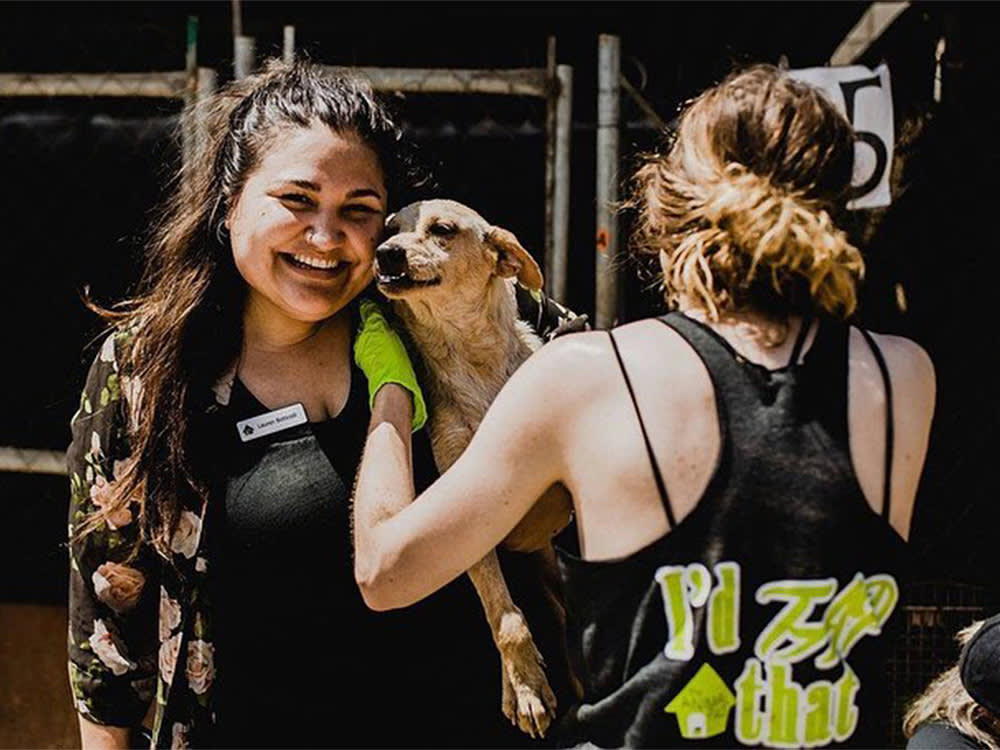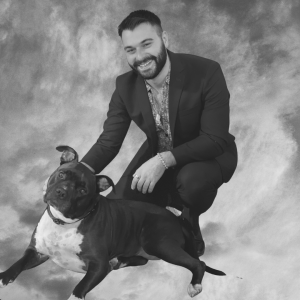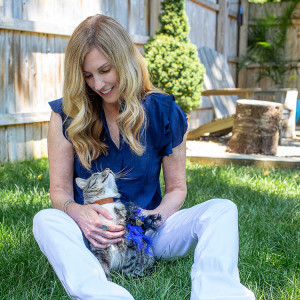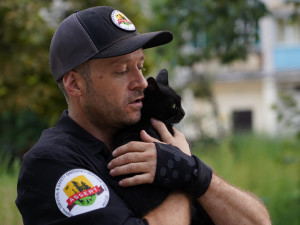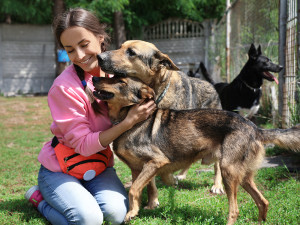As Shelters Fill Up With Dogs, The Animal Pad Volunteers Roll Up Their Sleeves
The San Diego-based rescue’s 300 volunteers take saving Mexican street dogs as seriously as a full-time job (but have fun doing it).
In 2010, Stephanie Nisan found herself in a place many have been before: She wanted a dog but didn’t know how to find one. At the time, Nisan wasn’t aware of any nearby rescues in San Diego but knew she didn’t want to go to a breeder. Like most people in the 2010s looking for something specific, she turned to Craigslist. There was an ad about a dog up for adoption from a shelter, and she made the call.
When Nisan met the dog, she quickly learned he had some behavioral issues and was very human-aggressive. But she also knew she couldn’t turn her back on the dog — so she adopted him. The experience ignited something in Nisan, opening her eyes to a slew of issues with the local shelter system and just how many dogs were in dire need of help. Shortly after that, she founded The Animal Padopens in new tab, and its reach now expands well past the Golden State.
Today, the rescue has over 300 volunteers of dedicated dog lovers who treat the work as their primary occupation. One of its veterans is the organization’s executive director, Lauren Botticelli. After volunteering for over five years, she was able to leave her day job and commit to The Animal Pad full-time in April. But, as she tells it, not much has changed.
“I’ve been doing this as my full-time 24/7 job for five and a half years at this point. As soon as I got involved, that’s what it became, and every other job or thing that I did was strictly just a job, and this is not that to me at all. This is literally my life,” Botticelli tells Kinship. But that’s not exactly a unique feeling at The Animal Pad.
“I’m not special. Everyone takes this so seriously because it’s passion work,” she says. The vibe is closer to a recreational softball team than an animal rescue. People show up because they genuinely love to help animals and have fun doing it. Botticelli describes The Animal Pad as more than a rescue, the group having evolved into a second family. “At this point, all of my best friends are a part of this organization,” she adds.
How much do you spend on your pet per year?
Many of the volunteers came to San Diego with few connections and have used the organization to essentially grow their entire social circles. She continues: “I think they go into it a lot of the time just wanting to interact with dogs, feel good and feel purpose but at the end of the day, they leave with their best friends and a support system.”
The amount of enthusiasm and excitement The Animal Pad volunteers maintain can seem surprising, given that much of their work involves saving dogs from some pretty horrific circumstances. Despite being San Diego-based, most of the dogs they rescue come from Mexico and a life on the streets. It’s a crisis that has ravaged the country, which doesn’t have the resources to combat it.
“We don’t see many senior dogs on the streets of Mexico because they don’t survive to be seniors,” Botticelli explains. “These dogs are just every day having to sleep with one eye open. They’re having to protect themselves. They’re having to forage for food. They come to us in really awful shape.”
These animals have been so neglected and abandoned that when Botticelli and her teams find them, they often have curable diseases in progressive states; many have fleas and occasionally even STIs. Some have been hit by cars and left for dead, others have been thrown out of their homes. Most often, these dogs were born as street dogs.
“The street dog population just keeps multiplying. It’s far better than it ever has been, but it just is multiplying because we see dogs getting pregnant on the streets constantly,” Botticelli says. It’s why the organization prioritizes grabbing any pregnant dog they see or are told about through her various social channels. They also work to educate locals on the importance of spaying and neutering.
Of course, none of this kills The Animal Pad’s spirit. In fact, it only makes them work harder. Botticelli and other volunteers will pack into their lime green company van and drive in and out of the country, scooping up however many pups are willing and can fit. Fortunately, they rarely have any issues crossing the border with a car full of dogs. Most border agents support their mission and are happy someone is trying to help. A fervorous van full of altruists probably doesn’t hurt, either.
It’s certainly that attitude that found the organization helping out pups in another San Diego shelter — except this one was in Texas. “We were getting tagged in a bunch of posts from San Diego, Texas, people saying, ‘These dogs are in San Diego, can you help them?’ It was the wrong San Diego, but through that kind of blossomed this beautiful partnership with that shelter where now they transport dogs to us,” Botticelli adds.
There’s not much that can dwindle The Animal Pad’s efforts — especially not a case of mistaken identity. That being said, the pandemic and its lingering impacts have certainly tried. Like so many rescues and shelters across the states, the organization saw a massive boom of adoptions during the lockdown months when everyone was bored at home and wanted something cute to focus their energy on. Sadly, many of these pandemic pups have been returned to shelters — and they’re overflowing.
Most of the dogs who were adopted during the pandemic and since relinquished were puppies. Because of this, these pups have spent a large portion of their lives inside and have little experience interacting with other dogs or people. It’s forced The Animal Pad to reallocate some of their resources and focus on training these pups to find them real forever homes. Luckily, Botticelli reports that once they’ve been adopted a second time, they haven’t had a single one brought back.
For her, it all comes down to this simple outlook: “The silver lining in all of this is that we are there for them when they need it.”
